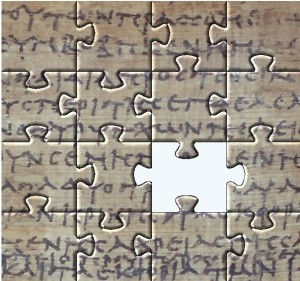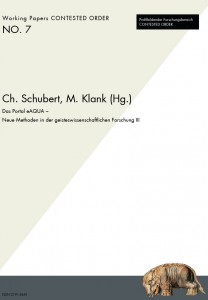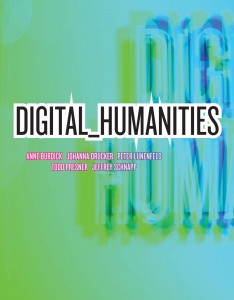Word, Space, Time. Digital Perspectives on the Classical World
An interdisciplinary conference organized by the Digital Classics Association
University at Buffalo, SUNY, North Campus, Buffalo, NY 14261
April 5-6, 2013
Conference Program
Quotations and Text Re-uses of Lost Authors and Works
Monica Berti on February 4 2013
Word, Space, Time. Digital Perspectives on the Classical World
An interdisciplinary conference organized by the Digital Classics Association
University at Buffalo, SUNY, North Campus, Buffalo, NY 14261
April 5-6, 2013
Conference Program
Monica Berti on January 30 2013
 Anvil Academic and Dickinson College Commentaries announce the availability of a $1,000 prize for the best scholarly visualization of data in the field of classical studies submitted during 2013. Two runners-up will be awarded prizes of $500 each. Submissions must include:
Anvil Academic and Dickinson College Commentaries announce the availability of a $1,000 prize for the best scholarly visualization of data in the field of classical studies submitted during 2013. Two runners-up will be awarded prizes of $500 each. Submissions must include:
Monica Berti on January 29 2013
 Fragments, Holes, and Wholes: Reconstructing the Ancient World in Theory and Practice
Fragments, Holes, and Wholes: Reconstructing the Ancient World in Theory and Practice
Warsaw, Poland, 12th–14th June 2014
An international conference organized by the Scientific Committee on Ancient Culture of the Polish Academy of Sciences, the Institute of Classical Studies of the University of Warsaw, the Institute of Archaeology of the University of Warsaw, the Institute of Classical Studies of Adam Mickiewicz University in Poznań
Invited Speakers:
Hans-Joachim Gehrke, Annette Harder, Wolfgang Kaiser, Dirk Obbink, Paul Zanker
Monica Berti on January 20 2013
29 January 2013, 6.15 pm Anatomy Museum Space, Strand Campus
Annette Gessner, Göttingen Centre for Digital Humanities
Attendance is free and open to all, but registration is requested: http://www.eventbrite.com/event/5177008572
All kinds of texts are linked by citations, paraphrases, allusions, winged words or other textual concordances (or “text re-use”). But to try and find out how many intertextual relations there are, you’d have to spend a lot of time and energy.
Monica Berti on January 8 2013
21st Century Citation and Practical Quotation in a Digital Library
Professor Christopher W. Blackwell (Furman University)
Thursday January 17th, 13:00
Room B.7, Classics Department, King’s College London
The heart of humanist scholarship is “quotation”, reproduction plus citation. Reproduction lets us focus on an object of study — a word, a verse. Citation saves us from having to reproduce more than we need, while still affording access to an object-of-study’s larger context. Citations are concise. If done correctly, they allow graphs of knowledge to survive across technological revolutions.
Monica Berti on December 8 2012
 We are very pleased to announce the publication of a new collection of working papers by the research team of eAQUA about quotations and fragments in the works of the Greek author Plutarch:
We are very pleased to announce the publication of a new collection of working papers by the research team of eAQUA about quotations and fragments in the works of the Greek author Plutarch:
Ch. Schubert, M. Klank (Hg.), Das Portal eAQUA – Neue Methoden in der geisteswissenschaftlichen Forschung III, Working Papers Contested Order No. 7, Leipzig 2012 (get the PDF)
Monica Berti on December 7 2012
 Digital Humanities by Peter Lunenfeld, Anne Burdick, Johanna Drucker, Todd Presner and Jeffrey Schnapp
Digital Humanities by Peter Lunenfeld, Anne Burdick, Johanna Drucker, Todd Presner and Jeffrey Schnapp
Digital_Humanities is a compact, game-changing report on the state of contemporary knowledge production. Answering the question, “What is digital humanities?,” it provides an in-depth examination of an emerging field. This collaboratively authored and visually compelling volume explores methodologies and techniques unfamiliar to traditional modes of humanistic inquiry – including geospatial analysis, data mining, corpus linguistics, visualization, and simulation – to show their relevance for contemporary culture.
Monica Berti on December 6 2012
![]() By Gregory R. Crane (Perseus Digital Library):
By Gregory R. Crane (Perseus Digital Library):
We are preparing for a new set of texts to be entered by the data entry firm with which we work (http://www.digitaldividedata.org/). The next order will be sent in mid December but a more substantial order will be placed early in 2013.
Social Widgets powered by AB-WebLog.com.